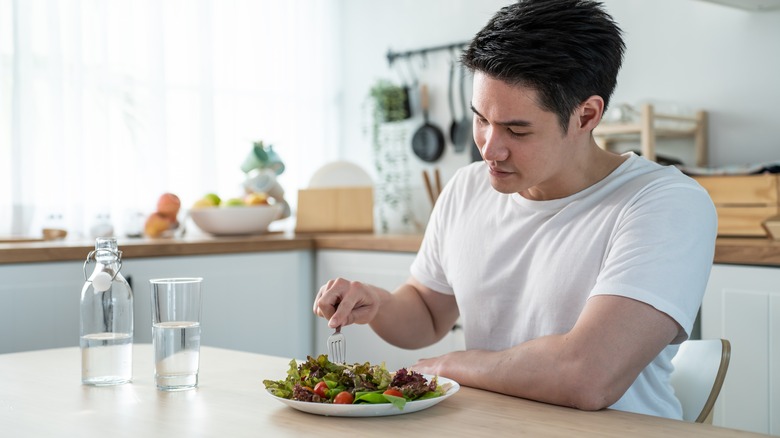How To Break Unhealthy Habits You Picked Up During The Pandemic
As we faced ongoing mental and physical challenges throughout the duration of the pandemic, we were forced to adopt new habits to cope with the realities of quarantine. While some of these habits may have had a positive impact, such as increased hand washing, at-home cooking, or spending more time with family, a survey issued to more than 1,000 participants revealed that six out of 10 Americans are looking to break what they deem to be unhealthy habits picked up during the pandemic.
Out of the top three habits identified, 30% of survey respondents are looking to reduce screen time, 22% are looking to improve their eating habits, and 21% are seeking to curb their sleeping behavior. Other unhealthy habits cited by participants were increased alcohol consumption, disregarding mental health, and neglecting to maintain a healthy work-life balance.
Once a habit becomes embedded in our day-to-day lives, it can be difficult to reverse. Thankfully, experts are offering actionable steps people can take as we emerge from the pandemic to help us reach our new goals and do away with old habits.
Reducing screen time and eating healthier
Heathline spoke with the director of psychology at Driftwood Recovery Dr. Vanessa Kennedy, and brain health expert Dr. Teralyn Sell. Between them, three main factors were identified to ensure successful habit-breaking: consistency, reducing overwhelm, and implementing replacement habits. Having a strategy and being consistent can reduce the chances of failure.
To help limit screen time, experts say we don't have to do away with technology entirely, but rather designate a chunk of time each day where electronics are placed out of sight, out of mind (via Healthline). Rather than scrolling through your newsfeed, use that time to lock the phone away and try out a new healthy hobby such cooking, yoga, or other forms of self-care.
For those interested in making dietary changes, Dr. Kennedy states that meal planning and mapping out your grocery list beforehand can be helpful when trying to stick to certain food items. Additionally, if you find yourself craving caffeine or something sweet, try subbing in a piece of fruit which can provide you with that same sweet taste and energy boost you're after.
Prioritizing sleep and self-compassion
The third most cited unhealthy habit Americans are looking to change is their sleeping patterns, according to ValuePenguin. Whether you're sleeping too much or too little, starting small with just one or two bedtime changes can lead to a new healthy habit, according to Dr. Sell (via Healthline). Such examples include eliminating sources of light in the bedroom, minimizing electronics usage, and using sleep tracking apps to help you set a consistent bedtime.
If you're someone looking to break a pandemic habit, experts remind us to approach it from a place of self-compassion (per Sharp). Many of us are still processing the trauma of the last two years and are still relying on screens, food, or sleep, as these were things that helped many of us get through this trying time. When working towards new habits, guilt can put added pressure on us. But having self-compassion can help move us toward our goals in a healthy way. According to self-compassion expert Dr. Kristin Neff, self-compassion plays just as big a role in our health as any other healthy habit, suggesting it's one of the most powerful tools to create health and happiness, as noted by Healthy Nurse Healthy Nation.



